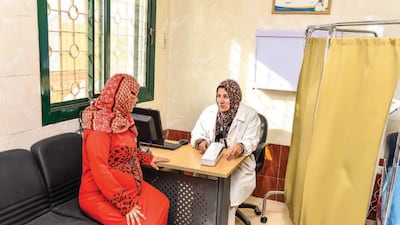Earlier this week, the UAE’s leaders sent messages to Egyptian president Abdel Fattah El Sisi to congratulate him on the anniversary of Egypt’s July 23, 1952 revolution.
The President, Sheikh Khalifa, Sheikh Mohammed bin Rashid, Vice President and Ruler of Dubai, and Sheikh Mohammed bin Zayed, Crown Prince of Abu Dhabi and Deputy Supreme Commander of the Armed Forces, each sent cables to Mr El Sisi to mark a day that the UAE regards as the beginning of Egypt’s modern history.
The revolution in the Arab world’s most populous country led to a rise in Arab nationalism and affected the social, political and economic mindsets of the country.
The UAE’s point man for today’s Egypt is Dr Sultan Al Jaber, Minister of State and head of the UAE/Egypt Liaison Office. He says that the UAE’s support for Egypt is firmly rooted in the conviction that the country’s stability and prosperity is critical for the region and the world.
Dr Al Jaber’s portfolio of interests makes him the right man to help Egypt redefine and energise its economy as the organisations he leads are crucial to its future.
Not only is Dr Al Jaber the chief executive of Masdar, which focuses on clean technology, renewable energy and sustainable development, but he is also chairman of Abu Dhabi Ports, chief executive of energy for Mubadala Development Company and a member of the board of trustees of the Emirates Diplomatic Academy.
Part of his goal is to take the UAE social development model to Egypt, a model that is based on the views and experiences of the UAE’s Founding Father, Sheikh Zayed.
Before he became President, Sheikh Zayed paid a visit to Egypt’s president, Gamal Abdel Nasser, in 1959.
On the trip, he secured an agreement with the Egyptian government to supply Abu Dhabi with teachers, engineers and agricultural experts.
Now, the UAE is returning the favour after Egypt’s period of instability, from 2010 to 2013, adversely affected its economy and society.
After a decades-long relationship, it was only natural that the UAE would help restore Egypt to its rightful place at the political, economic and social centre of the Arab world.
With this goal, Dr Al Jaber has set about overseeing a range of UAE projects in Egypt. Firstly, the 2013 Egyptian Gulf Investment Forum and the Egypt Economic Development Conference in Sharm El Sheikh in March were both backed by the UAE and helped raise billions of dollars for Mr El Sisi’s government reform efforts.
Second, the UAE is overseeing the rapid construction of the new Suez Canal.
The canal is critical to Egypt’s future and the project was launched by the UAE’s National Marine Dredging Company.
In addition, the NMDC is involved in efforts to set up the Suez Canal Development Zone, which will include ports, industrial parks and logistics hubs. If that sounds familiar, it should be as the establishment of such zones is part of the UAE’s exportable economic vision, which involves continuous development of areas to boost both the local economy and the UAE companies behind it.
There are now more than 600 UAE companies operating in Egypt and so this arrangement can be mutually beneficial.
As well as Dr Al Jaber’s involvement in Egypt, the Armed Forces play a major role in the two countries’ relationship.
The rise of ISIL in Sinai and its penetration of Egypt from Libya during the past two years is an issue that both countries’ forces have been working together to combat.
They train together and Abu Dhabi has been sending arms and trainers to help Cairo against threats. In Egypt’s western regions, the UAE is helping with border control and other operations.
The UAE and Egypt are also on the same page when it comes to curbing extremism and hate speech. This is where an ideological war is going on and both countries are keen to crush the terrorists’ narrative.
The anniversary of Egypt’s 1952 revolution served as an important reminder, not only of what happened then but of how the UAE and Mr El Sisi are working together for the benefit of both countries’ future generations.
newsdesk@thenational.ae
Dr Theodore Karasik is a UAE-based geopolitical analyst and commentator on UAE foreign affairs.

